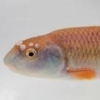Sunfish feeding issues?
#1
 Guest_juhason_*
Guest_juhason_*
Posted 01 March 2014 - 07:24 PM
#2

Posted 01 March 2014 - 07:52 PM
(from zimmerman, who btw is turning out to be gorgeous)
I've seen Brian and he's not ugly or anything, but no way would I ever call him gorgeous
But as far as your sunfish eating... let them go a day or two without anything to eat... they will be more interested food... and they will be none the worse for the short fast.
#3

Posted 01 March 2014 - 08:24 PM
"No thanks, a third of a gopher would merely arouse my appetite..."
#4
 Guest_juhason_*
Guest_juhason_*
Posted 02 March 2014 - 09:21 AM
Thanks for the info, I shall try the fast!
#5
 Guest_Subrosa_*
Guest_Subrosa_*
Posted 02 March 2014 - 11:38 AM
#6

Posted 02 March 2014 - 01:06 PM
Haha well since I can't exactly tell if you guys are joking, I'll just assure everyone I was talking about the fish.
Thanks for the info, I shall try the fast!
Yes, I was joking... just picking on your dangling participle there... but I was serious about the fish advice... the fast will do sunfish good. I also agree with Subrosa, you do need to train them somewhat. From that standpoint... when you do feed them do so in the same place or with the same ritual (and I mean even what you do and where you stand outside the tank, they can totally see you and are watching)... they will learn that your approach i a certain way means dinner, and will be more responsive.
#7
 Guest_EBParks_*
Guest_EBParks_*
Posted 03 March 2014 - 12:57 PM
#8
 Guest_gerald_*
Guest_gerald_*
Posted 03 March 2014 - 01:37 PM
#9
 Guest_juhason_*
Guest_juhason_*
Posted 04 March 2014 - 01:16 PM
#10
 Guest_Irate Mormon_*
Guest_Irate Mormon_*
Posted 06 March 2014 - 12:44 AM
After that, the pumpkinseed stopped accepting anything the next day. Now all I can get him to eat are fish flakes! He won't even look at a worm or pellet anymore
That's a sure sign that he's fixing to die.
#11
 Guest_centrarchid_*
Guest_centrarchid_*
Posted 06 March 2014 - 09:33 AM
#12
 Guest_juhason_*
Guest_juhason_*
Posted 06 March 2014 - 11:27 PM
Actually gerald was on point. After some research I have identified the worms as E. foetida. My pumpkinseed is perfectly ok now, and is accepting most foods again.That's a sure sign that he's fixing to die.
Oh manMore than one species taste like crap. We used to harvest a menagerie of worms from calf manure pile behind barn. The pink worms and white worms (species unknown) had to be removed leaving only the dark chunky ones for use as feed and bait. There appears to be a lot of worm species out there.
#13
 Guest_gerald_*
Guest_gerald_*
Posted 07 March 2014 - 12:57 PM
#14
 Guest_juhason_*
Guest_juhason_*
Posted 10 March 2014 - 04:25 PM
So darker over paler! Got it. I think I'll have convince them to ever even look at a worm again though haha.Of the worms in my yard and compost (central NC) the darker ones (L. rubellus I think?) seem to be preferred over the pale kind (fish, turtles, salamanders all agree on this). They behave differently too - the pale ones twist up around themselves in a loose ball, which the red ones don't. Dont know what genus or species the pale ones are, but I'm fairly sure they're not E. fetida.
0 user(s) are reading this topic
0 members, 0 guests, 0 anonymous users










